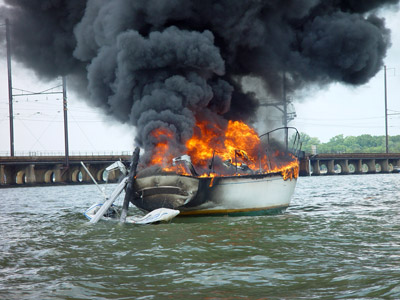
You likely don’t want to think about losing your boat in a sinking or other accident. But, no ship is unsinkable. It could happen to you.
Hull losses often mean a boater loses an important investment. However, you also have to think about sinking in how it affects others. The sinking might damage public property on a body of water. In these cases, your boat insurance might provide valuable help.
Wreckage Removal Coverage
Most people don’t have access to private bodies of water. Boaters will likely use their vessels on state, federal or in international waters. No matter where you boat, hull loss risks are present. For example, the boat might catch fire and sink. In another scenario, a collision with a foreign object might cause the boat to sink.
What many boat owners have to realize is that if their boat sinks, it may pose hazards to others on public water. It may become an obstacle in navigable waterways. Contents that went down with the vessel may contaminate the local environment. To control these risks, many authorities require owners to salvage and remove wrecks.
In such situations, wreck removal coverage might help the affected boater. Should you have to pay to salvage the sunken boat, this protection should pay to cover the costs. It will usually pay up to the limits of the policy. However, exclusions may exist. Ensure your wreck removal protection pertains directly to your vessel and loss risks.
Furthermore, boat coverage may provide cover more costs than just simple removal protection. It might provide a degree of pollution coverage.Fuel spills or other contamination from sinking might pollute the local environment. Pollution coverage might help the boater pay for clean-up.
Don’t forget to get personal possessions coverage to go along with removal coverage. Hull losses might destroy the your personal items aboard the boat. You will want to be able to replace some or all of your lost property in the event of a sinking.
What to do After a Boat Wreck
A sinking or other form of boat destruction is an imminent emergency. Your first priority should be your own safety and the safety of others. If you must abandon ship, do so as fast and safely as possible.
Immediately contact the authorities in charge of the body of water. They can assist with search and rescue, and take steps to isolate the wreck. Also, don’t wait to contact your insurance company. Your adjuster can usually help you take steps to expediently commence wreckage removal. With the right care, you can control damage resulting from the accidents.